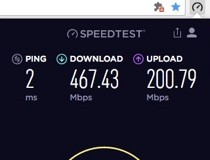

Both saw opportunities to launch something that didn’t yet exist in the healthcare space, improving lives of patients – and using tech to make the change.

Two out of the four finalists from our 2022 FedEx Small Business Grant Contest – our annual competition to award the most innovative start-ups in Asia Pacific and beyond – were young women working in medtech and a healthcare services enablement platform.

Start-ups – built by young founders who are digital natives – are at the forefront of this change. There are opportunities to work with data sets that can truly transform how we live and how sustainable our future can be. There’s room for blue sky thinking and creativity.

Increasingly, we’re seeing tech change lives for the better in sectors like healthcare, helping to cure diseases, increase lifespans and contribute to a healthier society. They can work in AI, robotics, 5G, future mobility, climate research and more. Girls aspiring to study STEM fields don’t need to be an engineer, scientist, or educator. Tech is filled with endless opportunities. Of course, science and technology roles today are light years away from when I was young. Recently, we’ve also developed a mentorship and professional skills development program for young female students in the Philippines who aspire to pursue careers in STEM. Vulnerable female-led SMEs were among the hardest hit during the pandemic and continue to need help – especially those from low-income communities. Teaming up with community NGO United Way Mumbai, we helped 700 women from low-income groups access the tools and essential support needed to re-start their enterprises and recover. At the height of the pandemic, we set up support systems for female entrepreneurs in India who were at risk of losing the businesses they had built and their ability to provide for their families. Mentorship has been a key part of FedEx initiatives to champion women in business across Asia Pacific, the Middle East and Africa. If that happens, gender inequality and unconscious bias win again. If mentors in STEM are only male, chances are that stereotypes – especially at such a formative age – will be reinforced. Everyone benefits from diverse role models. This experience taught me something powerful: the importance of mentorship. I had to make sure that the same doors that were open to my male classmates were also being held open for me. Instead, being one of only a handful of women taught me to make sure that in a male-dominated environment, my voice could be heard. This could easily have been a disadvantage. As a woman, I was without doubt in a minority set from the beginning. By the time I reached university, I was studying engineering. As a young girl growing up in India, science became the pathway for me to find my passion and sharpen a set of skills that would equip me for the future.


 0 kommentar(er)
0 kommentar(er)
